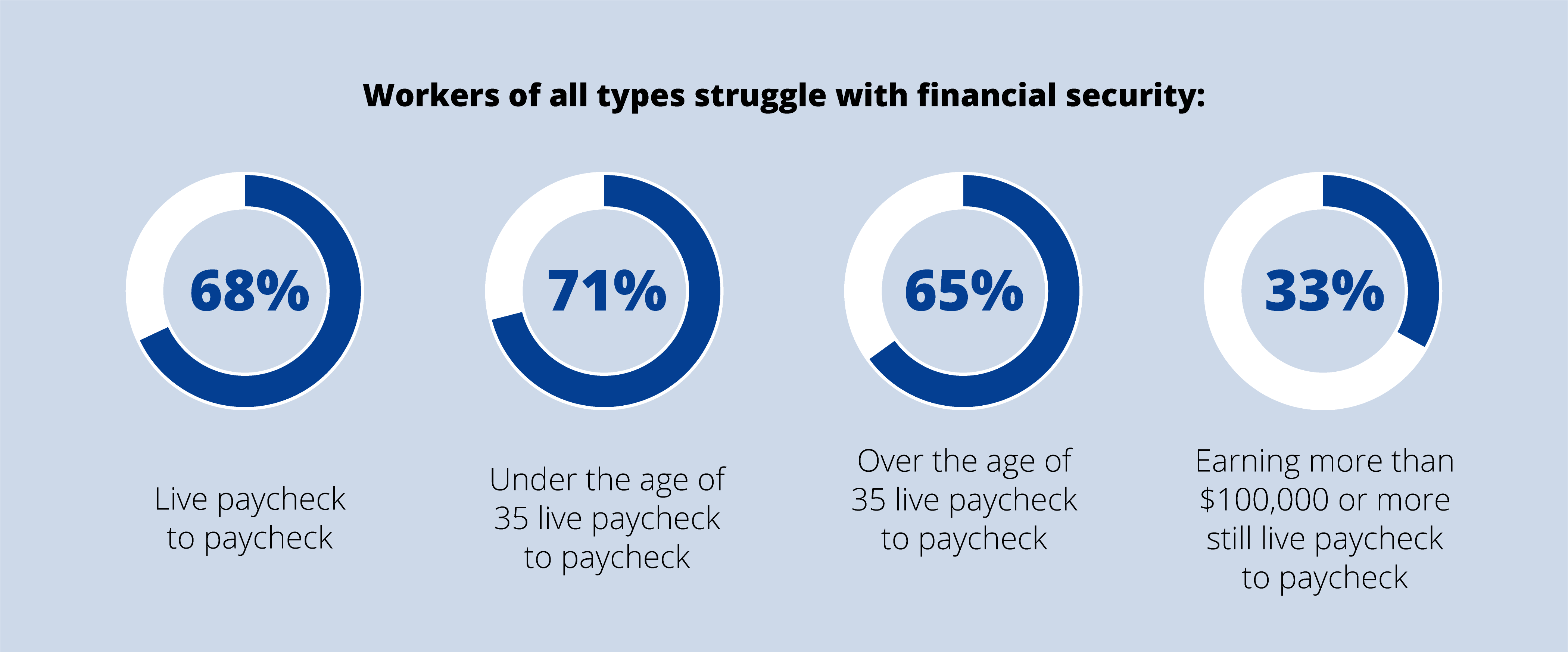We all know how important mental health is for stability in our personal lives. Having good mental health gives us the resilience, emotional resources, and mental strength to get through the ups and downs of stressful modern life. Unfortunately, over the last few decades, our collective mental health has exhibited a sharp decline.
The Modern Mental Health Epidemic
Americans are feeling worse by a number of different metrics. This is especially true when we look at data about changes in mental health since the pandemic began in 2020. The pandemic has increased the prevalence of depression. It has increased mental illness symptoms for those who previously suffered from mental illness and has caused many without previous mental illness to develop symptoms. Suicidal ideation has increased, especially among young people, who have been among the hardest hit during the pandemic.

But these trends existed long before the COVID-19 pandemic began. The truth is, modern life involves an abundance of stressors that our brains have not evolved for. Our industrialized economy means that we are less physically active, spend very little time outside, and must endure unprecedented financial and social stress. Easy access to technology like social media may have unknown effects on our mental health, attention span, and stress levels. It’s tough to cope with anxiety, depression, or other mental illness under these social conditions.
The Impact of Work

Work, too, can have a profound impact on our mental health and overall well-being. At its best, work can provide personal and financial stability, a sense of positive socialization, purpose, community, and fulfillment. At its worst, it can contribute to financial stress, expose us to toxic cultures and behaviors, and torpedo our self-esteem. For beverage producers, this can look like unequal work dynamics between production and corporate employees, or a particularly heavy workload during times of high production. Or, on the flip side, if your taproom hosts tons of well-attended events in the summer, your servers and bartenders might be completely exhausted.
As an employer, you can support your employees’ mental health in a variety of ways. Not only does standing up for good mental health practices benefit individuals — it benefits us all by ushering in societal change. A world that is kind to all and that supports those struggling with mental illness is possible. Here are a few ways to take action to promote good mental health for your employees.
How to Support Employee Mental Health
Publicly Recognize the Importance of Mental Health
As a leader in your business, your behavior and opinions matter more than you think. You have the power to influence your work culture, and you can use that power to encourage your employees to take care of their mental health. Speaking openly about mental health and mental illness works to destigmatize these discussions and can make it easier for people to seek the help they need. There’s no need for ambiguity or innuendo here: tell your employees point-blank that mental health is important and that you support them. Then follow through with policies that support these statements. For example, if you know your production staff has just been through a stressful, busy period, you could offer a mental health day for the whole team, or plan a fun event to celebrate their hard work.
Lead by Example
Another way to reinforce your support for your employees’ mental health is to lead by example. Be honest about your own struggles, to the degree that you’re comfortable with. Take time off to take care of your mental health and tell your employees that you’re doing so.
Create a Welcoming, Safe Work Environment
Mental well-being at work depends on our ability to feel safe and welcome in our workplace. This may seem like a no-brainer, but many workplaces fail to consider this or willfully overlook instances in which employees are made to feel uncomfortable. A workplace that turns a blind eye to instances of racism, sexism, ableism, or other forms of discrimination is not a workplace that supports employee mental health. Studies have shown that experiencing discrimination and prejudice is terrible for our mental and physical health, and that even anticipating experiencing prejudice can have ill effects on our health. Creating a workplace that welcomes everyone is key to supporting employee mental health.
Don’t Pass on the Stress
What causes stress in the workplace? A number of factors, but a key one is the cycle of stress. Owners, CEOs, and other high-level managers stress about business performance. They then pass on this stress to lower-level managers, who in turn pass on stress to their employees. This toxic cycle of stress, negativity, and poor management is common in many businesses and can undo much of the good created by the other steps we’ve listed here.
How do you break the cycle? Managers set the tone of the workplace. Make a commitment that the stress of managing the business stops with you. Pressure is not an effective motivator for many people. More effective is support, clarity, and respect. Speak to your managers about how to support employees at every level of the business with policy changes.
Financial Support

Finances are one of the most common sources of stress. Money concerns are a common reason why people quit their jobs — a crucial indicator in a time when millions quit every month and employees are struggling to hire.
Inflation has risen significantly in the last year, and wages are not keeping up with the rising cost of living. Many people, including 33% of people who make over 100k per year, live paycheck-to-paycheck. While there’s no substitute for good financial literacy, employers can help offset mental stress related to finances by paying employees a living wage. The cost of living has risen nearly 8% in the last year — are your wages keeping up?
Sometimes upper level management doesn’t understand the daily financial struggles of the lower-level workers in production and logistics. But it’s worth the effort to try to empathize and create meaningful change. Their labor is the backbone of the business, and they often go overlooked, underpaid, and underappreciated.
Ask for Employee Feedback
There’s no substitute for hearing about your employees’ concerns straight from the source. If you’re concerned your employees won’t be honest with you and your team, have them fill out an anonymous survey with feedback. In all likelihood, there are key factors impacting your employees’ mental health that you aren’t aware of. If you’re committed to changing things for the better, you’ll ask for honest feedback and make changes based on what you learn.
Offer Mental Health Resources & Benefits
You can do a lot for your employees, but you can’t fulfill all their mental health needs. Many issues simply can’t be addressed with small measures and involve medication or therapy. Support employee mental health by making sure that your healthcare coverage includes benefits for therapy and mental healthcare. Affording these services when they’re not covered by insurance can be challenging and even impossible.
Make Room for Play
Play is fundamental to our sense of mental well-being. Far from being useful only for children’s mental development, play is actually helpful for adults in managing stress, staying spontaneous, and fostering community. Play doesn’t have to mean building blocks and playgrounds. You can implement play at work with music, team building games, or friendly competition.
Connect & Network
Social isolation can worsen symptoms of mental illness. Work can help with this stress by providing positive socialization. Encourage socializing and bonding within your workplace. Playing games together, going on a retreat, or simply having a beer tasting evening or movie night can encourage team members to bond and make friends. Networking outside your business can also be helpful for mental wellness and community. Consider a shared retreat with another local brewery.
Volunteer in the Community
Volunteering makes an impact in the local community and can improve well-being by providing a sense of purpose. It’s also a great playful bonding activity for teams. For the most impact and sense of purpose, keep volunteering activities local. Some options include serving meals at a soup kitchen, collecting supplies for homeless shelters, or delivering meals to the elderly through Meals on Wheels. Whatever your cause, involve team members in the decision making and planning processes.
The best way to address employee mental health is not with a single one-time activity, but to truly invest in the long-term success and health of your employees as individuals. They have full lives with unique needs just like you do, and while you can’t meet all of their needs, you can do your due diligence to ensure that work provides a safe, affirming place to earn a living wage in a supportive community. Committing to support employee mental health will only benefit your business in the long run by making your workforce happier, healthier, and more stable.



